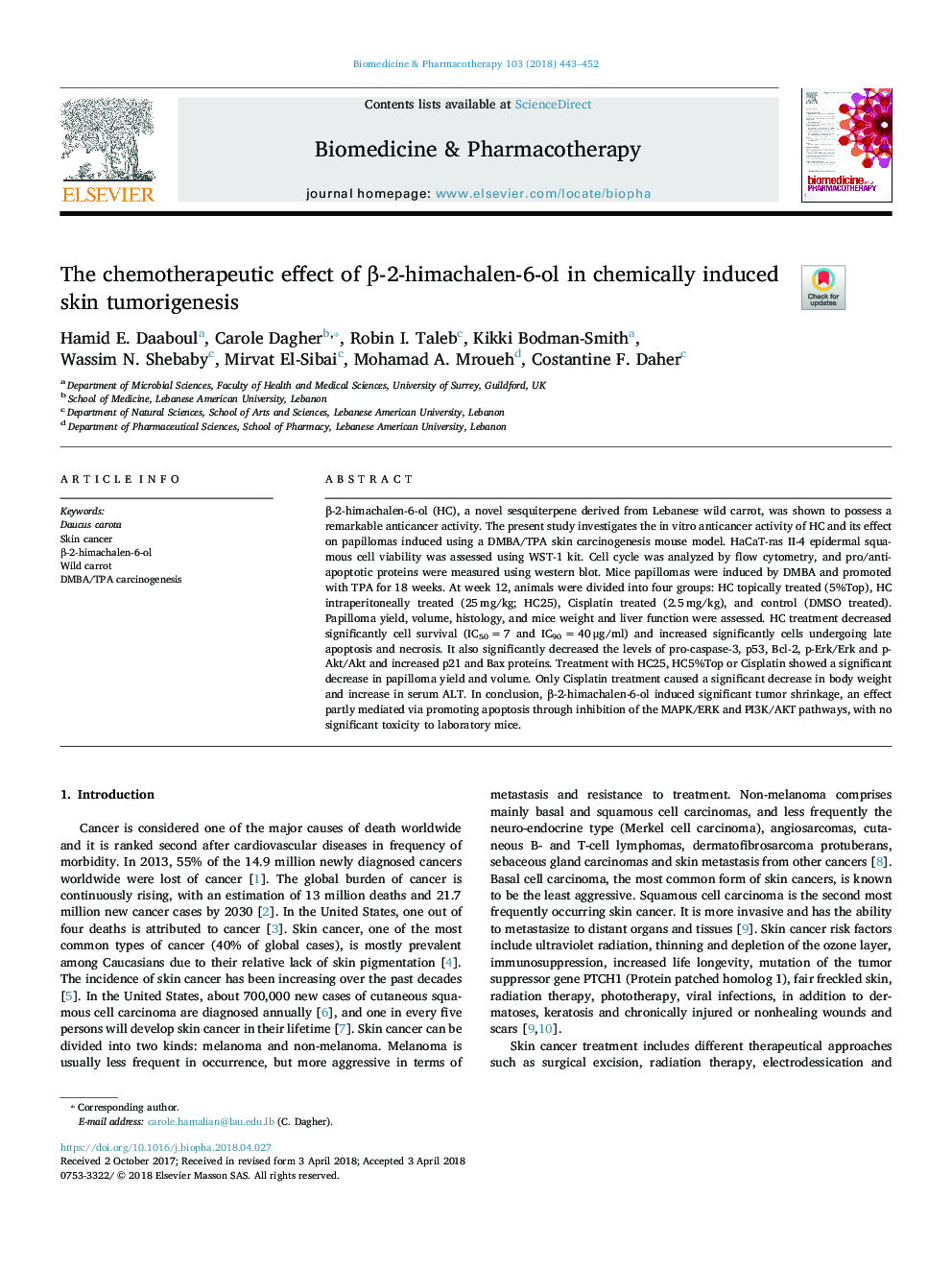| Article ID | Journal | Published Year | Pages | File Type |
|---|---|---|---|---|
| 8525487 | Biomedicine & Pharmacotherapy | 2018 | 10 Pages |
Abstract
β-2-himachalen-6-ol (HC), a novel sesquiterpene derived from Lebanese wild carrot, was shown to possess a remarkable anticancer activity. The present study investigates the in vitro anticancer activity of HC and its effect on papillomas induced using a DMBA/TPA skin carcinogenesis mouse model. HaCaT-ras II-4 epidermal squamous cell viability was assessed using WST-1 kit. Cell cycle was analyzed by flow cytometry, and pro/anti-apoptotic proteins were measured using western blot. Mice papillomas were induced by DMBA and promoted with TPA for 18 weeks. At week 12, animals were divided into four groups: HC topically treated (5%Top), HC intraperitoneally treated (25â¯mg/kg; HC25), Cisplatin treated (2.5â¯mg/kg), and control (DMSO treated). Papilloma yield, volume, histology, and mice weight and liver function were assessed. HC treatment decreased significantly cell survival (IC50â¯=â¯7 and IC90â¯=â¯40â¯Î¼g/ml) and increased significantly cells undergoing late apoptosis and necrosis. It also significantly decreased the levels of pro-caspase-3, p53, Bcl-2, p-Erk/Erk and p-Akt/Akt and increased p21 and Bax proteins. Treatment with HC25, HC5%Top or Cisplatin showed a significant decrease in papilloma yield and volume. Only Cisplatin treatment caused a significant decrease in body weight and increase in serum ALT. In conclusion, β-2-himachalen-6-ol induced significant tumor shrinkage, an effect partly mediated via promoting apoptosis through inhibition of the MAPK/ERK and PI3K/AKT pathways, with no significant toxicity to laboratory mice.
Keywords
Related Topics
Health Sciences
Medicine and Dentistry
Oncology
Authors
Hamid E. Daaboul, Carole Dagher, Robin I. Taleb, Kikki Bodman-Smith, Wassim N. Shebaby, Mirvat El-Sibai, Mohamad A. Mroueh, Costantine F. Daher,
